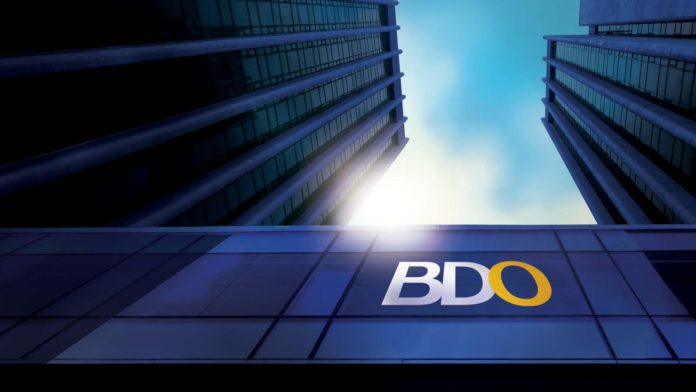For the banking public, the importance of online banking is more pronounced in today’s social distancing-mandated reality.
“With all the convenience of banking from home, however, people need to be also aware of the lurking online adversary—scammers who lure their victims to fake websites, steal their bank information and then eventually their money,” BDO Unibank, Inc. said in a statement.
As part of its #BDOAntiScam campaign, the Bank shares its six tips to outwit scammers and avoid being a victim of their fake websites:

1. Be wary of messages from a “concerned client”. There is a text message currently circulating that reads like this:
“BEWARE
I just received a call from BDO. For those who are using BDO for online transactions, please DO NOT DO IT FROM YOUR PHONE or APP. Do it from your desktop or laptop. I am no techie but they said that there is a malware that is affecting such transactions. This is also the reason why BDO was inaccessible most of the time yesterday. Be careful pls.”
This is fake and could be a ploy to drive away clients from using the bank’s mobile banking facility (especially from the BDO Mobile app) to a channel where scammers can better exploit their would-be victims and lure them to fake websites through the latter’s personal computer. Banks never call its clients to advise them on what to use or not to use. To be sure, check with the bank first for any official advisory and announcement, and refrain from sharing unverified news you have received via email or text.
2. Never click on links
You could also receive an email that reads like this:
“Dear valued client,
Greetings from BDO Online Banking.
Please be advised that we will deactivate the access of your account/s in BDO Online Banking if we don’t hear any actions from you.
It’s usually pretty easy to take care of things like this. Most of the time, we just need a little more information about your account or latest transactions. You can verify your account at https://online.bdo.com.ph/
These communication channels are available to you 24 hours a day, 7 days a week.
Thank you for banking online with us!
The BDO Online Banking Team
Important: Please save this message for future reference.”
This is fake. Banks will never send you an email asking you to log-in through an embedded link. If ever you received such an email, do not click on that link. It will lead you to a fake website where your personal information will be stolen.
3. Never enter your login details
If ever you do click on that link, don’t enter your login details such as username and password. If clicking on the link is essentially opening your door to scammers, logging in is akin to putting one foot through that door by sharing your personal banking information with them.
4. Never share your OTP
Now is not the time to share. Your login details and One-Time PIN (OTP) are yours and yours alone. Once you logged in your username and password, you will receive an OTP from your bank as its final security measure. Do not share this OTP to anyone else, especially to the scammers through their fake websites. If you do, this is essentially putting both feet through that door. This is a bad, bad move.
5. When in doubt, hover
All emails asking you to click on links are scam attacks—even if it includes the spelled out BDO website as a hyperlink. To double check, hover your cursor on the weblink without clicking on it. A preview will reveal that it leads to a different site and not www.bdo.com.ph.
6. When in doubt, ask
If you are unsure of what to do, you can visit BDO Unibank on Facebook (fb.com/ BDOUnibank) for official advisories and reminders. If you suspect that you have been scammed, you can get in touch with BDO by logging in Messenger and looking for BDO Customer Care with the blue verified checkmark from Facebook.






